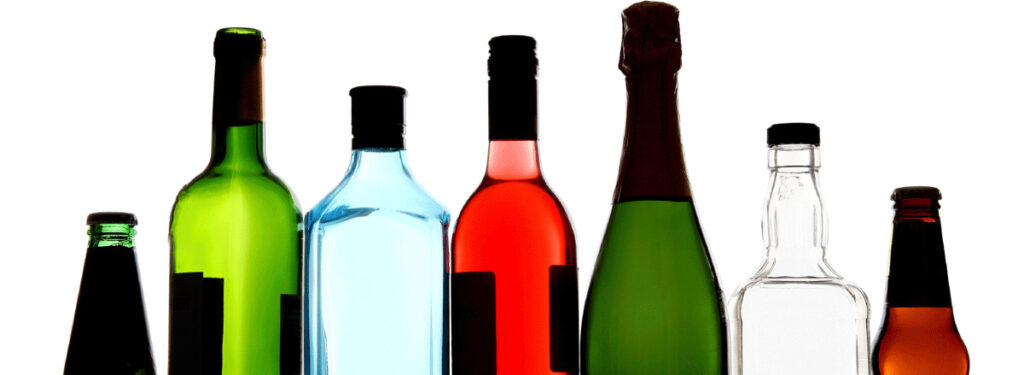In years past if you asked someone to imagine what an alcoholic looked like, they would more than likely describe a man sitting under a bridge with a brown bag, unshaven and unkempt. Although society has become more enlightened on the subject, recognizing the signs of alcoholism is still not as easy as you might think. There isn’t a test that you can go to the doctor for to see if you have it and what’s worse is that if you are afflicted with alcoholism, your mind will more than likely tell you that you do not suffer from the illness. For those around the alcoholic, it can be just as difficult to recognize and this is because alcoholism affects family and friends in such a way that even they will begin to believe that the person doesn’t have a drinking problem, subconsciously buying into the constructed delusion of the alcoholic. Adding to this complication is the fact that not everyone that drinks daily is an alcoholic, nor is everyone who gets into repeated familial or legal trouble an alcoholic. This is why 12-step programs emphasize self-diagnosis as the first step in recovery. The only person who can and must admit their alcoholism is the alcoholic and without this admission, nothing can be done. So if you are on the fence as to whether your drinking has become alcoholic, the signs below will hopefully help untangle this for you.
What is Alcoholism?
The American Medical Association defines alcoholism as, “a primary, chronic disease with genetic, psychosocial, and environmental factors influencing its development and manifestations.” This is a fairly good starting point for dissecting the signs of an alcoholic, but adding to this the Merriam-Webster definition for alcoholism of “a chronic disorder marked by excessive and usually compulsive drinking of alcohol leading to psychological and physical dependence or addiction”, helps to complete the picture. In simpler terms alcoholism is an illness with genetic components, of which the main characteristics are continued and compulsive consumption of alcohol. The compulsive part is what is most important and it is this aspect that most alcoholics find difficult to come to terms with. The misconception that one can control their drinking because they stopped for a period of time is what causes a great many alcoholics to prolong their illness. This coupled with a lack of societal consequences can be enough to keep someone drinking for many years after they have lost control. This means that being an alcoholic does not necessarily mean you are bankrupt, getting divorced, losing the kids, losing your license, or any other number of things that can come along with alcoholism, it simply means that you have a compulsion to drink and when you are not drinking there is an obsession of the mind, however slight it may be, always pulling you back towards the drink.
Signs Of An Alcoholic
The signs for what constitutes alcoholism or alcoholic drinking vary depending on the person. Some people may experience all of these signs while others may only experience one or two. If while reading these signs you at any time find yourself rationalizing or justifying your answers it may be symptomatic of a problem with alcohol, and you may want to seek professional help.
The inability to stop drinking, or staying stopped, even when you have a desire to
This is probably the most obvious sign of an alcoholic, but it is also the one that many people get confused about. Alcoholism involves a certain distortion in thinking that even when you have a thought that you don’t want to drink, it can be overridden by the obsession to such a degree that you start to believe that you never really wanted to stop in the first place. If at any time in the past you have found that you could not stop drinking when you wanted to or you could not stay stopped for the period of time you initially agreed upon, then this may be indicative of alcoholism.
Hiding either your alcohol or the amount that you drink
Most normal drinkers do not feel the need to hide their alcohol. They leave their beers in the fridge and drink without any of the guilt and shame that most alcoholics feel while actively drinking. If you find yourself hiding liquor around the house or hiding the fact that you drank that day from friends and family then this may be a sign that you are an alcoholic.
Your relationships are being affected by your drinking
Alcoholism is a relation illness, meaning it doesn’t just affect the drinker, but it affects all of the people closest to them as well. This sometimes is not clear to the alcoholic and they may feel that if everyone just left them alone they would be fine, not realizing that not only is the alcohol creating a schism between them and their loved ones, but it is also drawing them further into isolation, attacking all of their relationships from two fronts.
You begin to experience withdrawal symptoms when you don’t drink
Withdrawal from alcohol can be fatal and if you are planning to stop drinking you need to seek professional medical help. If you find that when you do not drink for a period of time you begin to experience any of the following symptoms then this may be a sign that you are suffering from alcoholism.
- Shaking or trembling
- Delirium tremens
- Vomiting or Nausea
- Depression
- Insomnia
- Shaking
- Anxiety
- Seizures
The four signs of an alcoholic listed above are probably the most common indicators that someone has a problem with alcohol, but there are also many others; some of them are listed below:
- Neglect of responsibilities at home, work, or school
- Consistently driving while under the influence
- Drinking in the morning
- Legal problems such as DUIs or drunken disorderly
- Blackouts or not remembering whole periods of time when drinking
- Increased tolerance to alcohol
- Daily drinking, although alcoholism is not contingent on amount or frequency
- Drinking more than you had initially planned
- Preoccupation with when you can have your next drink
Seeking Help For Your Alcoholism
If the preceding information resonated with you then you may need to seek help for your drinking. Stopping drinking on your own can be fatal, so if you or someone you know needs help with detoxing from alcohol, contact the professionals at SoCal Detox today, at toll-free 888-590-0777. We can help you start a new beginning and put an end to the vicious cycle of alcoholism.






